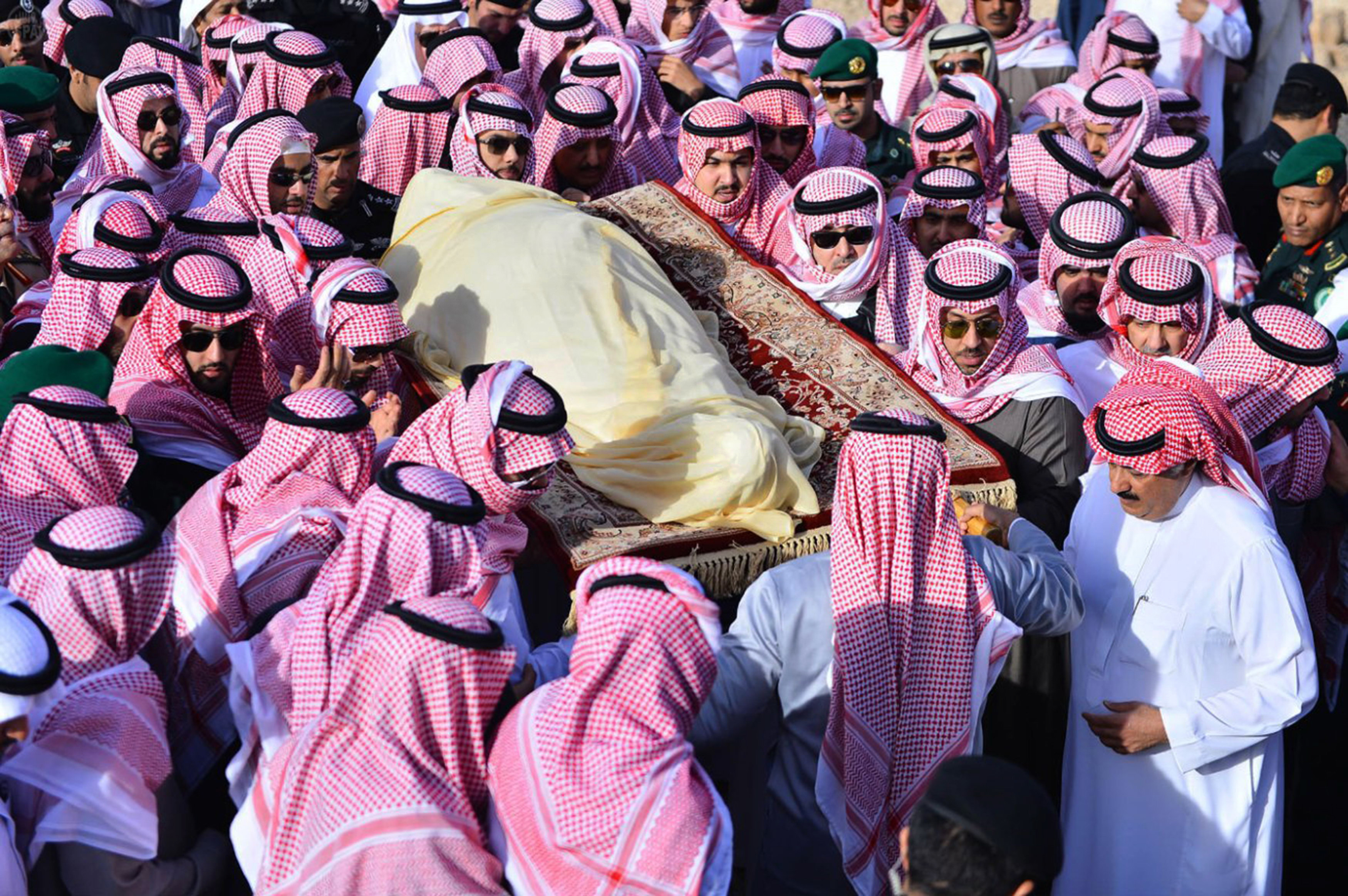Alwaght-
Although, regarding to Abdul-Aziz’s charter, transmission of power to his grandsons
is actually impossible as long as the king’s brothers are alive, their death
and illness in recent years has made including the grandsons in line of
succession indispensible; especially, by appointing some princes to ministerial
and emirate positions.
In fact,
transmission of succession to the next generation, is a special strategy for
finding a younger, healthier and more experienced king. Although most of these
grandsons are 40-70 years old, they enjoy governmental experience and, if they
are included in line of succession, they will practically gain the positions of
crown prince and kingdom in the future. Meanwhile,
the significant note is that the ex-kings’ sons and the low-reputed brothers
are of no importance for succession.
In fact, the
main chances among Abdu-Aziz’s grandsons primarily belong to sons of King
Abdulla (Motab: national guard minister, Mashal: Najran governer, Abdul-Aziz:
foreign minister’s vice-chancellor, Torki: Riyadh governer, Feisal: chairman of
Red Crescent), Sultan Suleiman (Feisal: Medina emirate, Muhammad, the crown
prince’s special counselor, Sultan: chairman of tourism organization), Naïf
(Muhammad: interior minister, Saud: emirate of eastern district), Sultan
(Bandar: resigned chairman of the information
organization, Khaled: defense minister’s ex-vice-chancellor, Fahad: Tabuk
emirate), Bandar (Khaled: chairman of the information organization, Feisal:
Ghasim emirate), Fahad (Muhammad, ex-emirate of eastern district. Abdul-Aziz:
head of the cabinet Divan) and Fiesal (Saud: foreign minister, Khaled:
education minister, Torki: ex-head of information organization and Al-Saud’s
non-official spokema).
Before, the
competition was between Motab bin Abdullah and Muhammad bin Nayef who are
ministers, protected by a wide range of princes and have appropriate international
and regional relationships. But by appointment King Salman, the competition is
mostly between Mohammad bin Nayef (crown prince) and Mohammad bin Salman (the
crown prince’s vice-chancellor).
So, due to
queuing of the princes, it can be said that Al-Saud faces a necessity; that is
making changes instead of waiting for creation a pervasive crisis. Agreement on kingdom crown for the next generation and participation
of young generation in decision makings can be beneficial to solve the problem.
Although defining the long-term line of succession needs a consensus among senior
figures of the family, it can prevent from instability and find substitutions
for the recent old generation. The hidden irony is that most of Abdul-Aziz’s
grandsons are old and have grandsons too; therefore, even if the power is
transmitted to next generation, the problem will not be basically solved and
Saudi Arabia will be face with succession crisis.



























